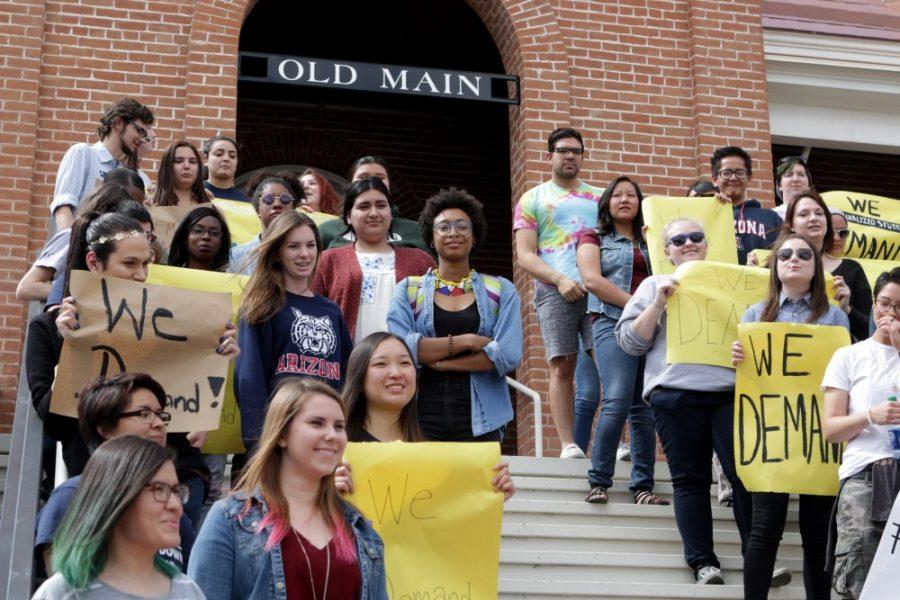UA researchers have found political context, not a lack of trust, keeps citizens of poorer countries silenced on the rights of oppressed groups. Past studies on the relationship between trust and involvement in social movements have been inclusive.
Some studies show a positive correlation between out-group trust and involvement in social movements or protests, while other show a weak or no existent relationship.
Hyungjun Suh, a doctoral student at the UA, and Heidi Reynolds-Stenson, a doctoral candidate, attribute this lack of consensus in previous research to the lack of attention paid to political context.
“Under the political context in which a country has functioning institutions and less political oppression, trust has a big positive effect [on participation in social movements],” Suh said after completing the comprehensive study. “Under unfavorable political contexts, trust has a weak effect.”
RELATED: Protesters make demands for marginalized students
In countries where protesting is allowed by a functioning government, individuals are more likely to actively protest on the behalf of groups whom they trust.
Suh and Reynolds-Stenson’s research can be applied to examine why the Black Lives Matter or LGBTQ movements have flourished in the U.S.
At an extreme end of the spectrum, Syria, which is engulfed in a civil war, will not experience the rise of social movements.
“Even though trust has a favorable effect on social movements, under those circumstance that effect doesn’t occur,” Suh said, relating this example to his research.
Last semester, the UA experienced the convergence of trust, a favorable political context and social protest when the the Marginalized Students of the University of Arizona, a conglomeration of students in campus cultural organizations, protested the treatment of minority groups on campus.
At the time, UA President Ann Weaver Hart listened to student experiences and acknowledged the students’ concerns. Afterwards, the group released a list of demands in order to inspire a movement to improve the climate on campus.
Suh and Reynolds-Stenson utilized the World Value Survey, a cross-national survey of individuals in more than 50 countries, in order to gain globally representative data on political contexts, trust and social movement involvement. Their data pool consisted of 43,000 questionnaire results.
Across the globe, those having a higher level of trust in others are more likely to participate in social movements or protests, according to Suh. The reason why participation in social movements does not directly correlate with trust is due to trust’s interactions with political context.
Suh said he believes further research can evaluate the effect of different aspects of political context on social involvement.
While the research he led defined political context in terms of oppression and stability, political culture and the ideology of incumbent governments could provide further insight into Suh and Reynolds-Stenson’s conclusions.
Suh said in today’s world, the growing commonplace of technology provides oppressed groups an audience more likely to sympathize with their experiences.
He added that in welcoming political environments, like the UA campus, this mutual trust correlates to participation in social movement.
While the prevalence of social demonstrations depends on the overriding political stability in a country, those individuals suffering oppression around the world do not lack allies.
When a protester at the UA raises their voice, Suh said their actions provide a voice to those unable to participate in social movements, not because of a lack of trust but because of the country they currently reside in.
Follow Randall Eck on Twitter.









